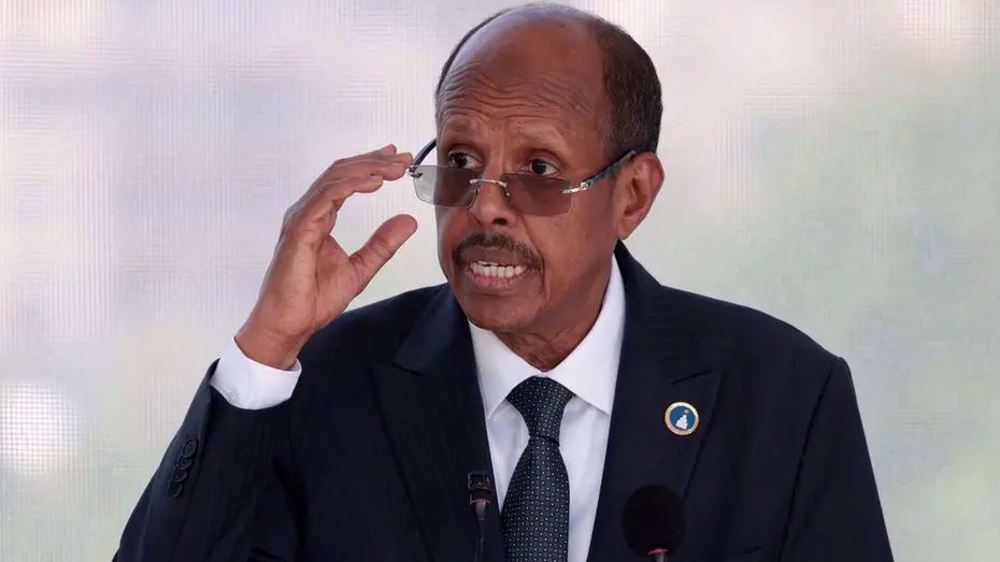Mozambique bracing for hard times as raw materials lose in value
A new report says the southern African country of Mozambique is in for hard times as global prices of raw materials continue to fall while much-criticized public spending remains unchanged.
The country is heavily dependent on revenues it earns through selling raw materials and has been feeling the sting as its national currency, metical, has been falling by more than 40 percent against the US dollar since the beginning of the year.
The devaluation of Mozambique’s money has been the worst ever decline by an African currency except for the Zambian kwacha, according to Bloomberg's financial information service, AFP reported.
The outcome has been a hike in domestic prices, particularly inevitable in a country like Mozambique, which has to import an enormous proportion of consumer goods.
Mozambique mostly exports natural gas, coal, cotton and aluminum, but the prices of such raw materials have been continuously falling over the past several months.
"There'll be no festive season," grumbles a greengrocer in Maputo, the capital of Mozambique, where the economy has taken a nosedive and the local currency has hit a historic low against the dollar.
At present, economic prospects in the country depend largely on exploiting vast reserves of gas, which have been discovered in the northern part of Mozambique since 2010 by the Italian oil and gas corporation, ENI, along with the US firm Anadarko.
But both corporations, however, have been canceling their investment plans for 2016 as a result of the steep fall in the price of the fossil fuel.
"Since the rate of these projects is slower, the economic dynamics of Mozambique are not up to our expectations," says Rogerio Nkomo, a spokesman for the country’s Economy and Finance Ministry when questioned by AFP.

"We should work to compensate for imports. After all, we're an agricultural country, but also a trading route for several landlocked nations that need our ports, rail links and roads," central bank governor, Ernesto Gove, said.
According to analysts, another problem that has been nagging the country’s ailing economy is uncontrolled rise in state spending.
Though the average annual growth rate has been 7 percent for 20 years, the poverty level in Mozambique stands at the high level of 54 percent of the population, said former prime minister, Luisa Diogo, who added, "The structure of our economy remains fragile."
Faced with escalating economic problems, Mozambique turned to the International Monetary Fund (IMF) at the end of October for the first time in a decade, asking for a loan of $286 million to improve its financial situation. Finally, the parliament approved cuts in the 2016 budget last Monday.
Observers are most concerned about lack of foreign currency reserves, which made the central bank announce a ceiling on cash withdrawals abroad on November 30 in a measure to avoid currency flight.
Critics blame former president, Armando Guebuza, in charge from 2005 to 2015, for wasting money on questionable investments, including a giant bridge in the capital and an unfinished ring road around the city, both more costly than planned.
Another controversial measure was the acquisition of a tuna fishing fleet by state-owned firm Ematum. The acquisition was financed by a state-guaranteed bond of $850 million and the deal caused uproar in the country once it emerged that much of the money was actually being spent on surveillance vessels and military equipment ordered from France.
"The boats have still not been used and are rusting in the harbor," Ivone Soares, the head of the parliamentary opposition group, said in protest to government’s measure, adding, "The money has been spent uselessly and nobody is able to say what it was for."
Discover Iran: The network of rivers, lakes, and wetlands of Sistan and Baluchestan
Russia: West reviving Navalny case to divert attention from Epstein scandal
Iran has ‘real ideas’ in indirect talks with US, will not submit to pressures: FM
‘Netanyahu is deceiving you’: Anti-settlement organization warns Trump
VIDEO | France, Italy, Germany call for UN special rapporteur Albanese to resign for slamming Israeli genoci
VIDEO | Kashmir prepares for Ramadan as holy month approaches
VIDEO | Two years on: Families plead for abducted Gaza doctors' release
VIDEO | Up to 4,000 children lost limbs in Gaza war, now trapped without prosthetics










 This makes it easy to access the Press TV website
This makes it easy to access the Press TV website